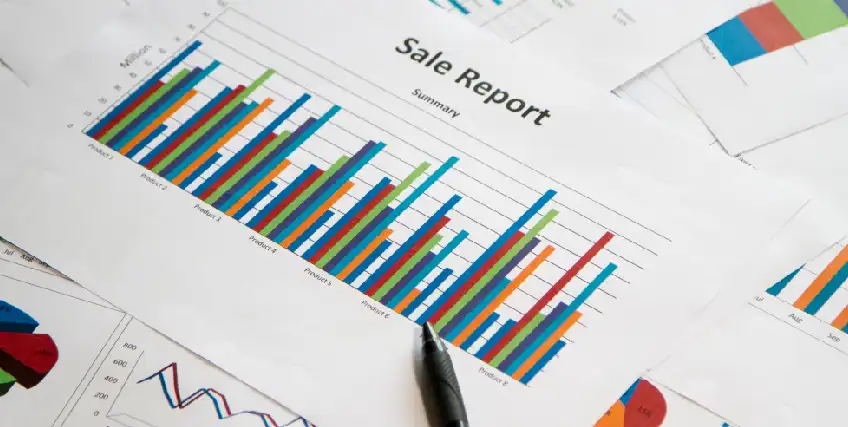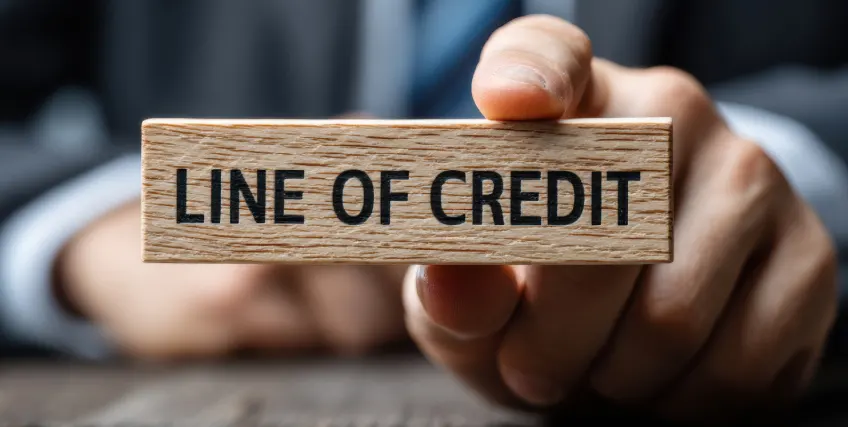Why Should a Small Business Open a Business Line of Credit?
April 25, 2025 | Last Updated on: April 25, 2025

Small business owners can access capital via a business line of credit to help them expand, purchase equipment, purchase inventory, hire or retain talent, acquire another business, and more. There are many things to consider before opening a business line of credit such as qualification requirements, choosing the right business line of credit lender, interest rates, and more. In this article, we will explore why a business should consider opening a line of credit.
What is a small business line of credit?
A small business line of credit is similar to a credit card. Lenders will establish a credit limit for the maximum amount of money they will lend to a borrower. The borrower can then tap as much as they need up to the limit. Like a credit card, the borrower will only pay interest on the amount that is borrowed.
In most cases, having a business line of credit is very beneficial because running a business isn’t always smooth sailing. Entrepreneurs know that surprises are around every corner and having access to capital can help navigate those periods of uncertainty. This type of financing is very popular among small business owners.
Preventing unanticipated expenses is impossible but having a business line of credit is a great way to be prepared for them. There are also opportunities around every corner and having access to capital can help you take advantage of them. Sometimes the window of opportunity is very slim and a business line of credit can give you the immediate cash you need to act.
Business Line of Credit vs Business Credit Card
There are similarities between a business line of credit and a business credit card but they are two very different ways to access capital. In general, interest rates for credit cards can be much higher than a business line of credit. Receiving cash with your credit card means paying a fee and/or a higher interest rate for a cash advance. Credit cards have inflexible monthly payments that require you to meet the payment in full or be charged a high-interest rate. With a business line of credit, you may be able to arrange custom repayment terms that fit your business cycle.
Traditional lenders (like traditional banks and credit unions) offer both lines of credit and credit cards to established businesses and startups alike. However, online lenders typically only offer a business line of credit and not business credit cards. So you have more options when looking to open a business line of credit than you do a business credit card.
For more information on the benefits and drawbacks of business credit cards, please see our in-depth guide called: business credit card.
Loan vs Line of Credit
A loan is where a small business receives a lump sum of an agreed-upon dollar amount from a lender. A business line of credit is similar to a credit card as the lender will establish a credit limit for the maximum amount of money they will lend you and you can tap as much as you need up to your limit. Like a credit card, you pay interest only on the amount you borrow.
When you pull funds from the line of credit, it will be deposited directly into a business checking account. When you pay back the amount you pulled, it will reflect in the revolving line of credit.
There are many types of loans to choose from and many different reasons why a small business would want to open a loan over a line of credit depending on the situation.
The pros and cons of a business line of credit
A business line of credit is a versatile and flexible financing option for businesses that allows them to take advantage of immediate-term, short-term, and long-term opportunities or downturns as they present themselves. Let’s review the pros and cons of a business line of credit.
Pros of opening a business line of credit
Competitive Interest Rates: For small businesses that have an established credit profile and meet a certain annual revenue threshold, a business line of credit can come with competitive interest rates that are comparable to those of a business loan. This is a benefit because it is typically easier to open a business line of credit than it is a loan.
Flexible: A business line of credit can be used for any business expense. Unlike small business loans, which have specific rules around what the money can be used for, you are free to use capital from a business line of credit in any way you choose. This is a major reason why a small business should open a business line of credit. It is impossible to predict the future, and whether a setback or opportunity presents itself, having access to cash can be very beneficial.
Revolving: A business line of credit can be revolving. This means the business line of credit is open-ended and can be used and paid down repeatedly as long as the account remains open. Keep in mind that some credit lines can have a specific draw period.
Ready cash: Once a business line of credit is open, you can draw cash from it very quickly. There are no additional applications or screenings after you open a business line of credit. Having cash at the ready can provide small business owners with the working capital they need to operate.
Improve credit profile: For a new business, a strong credit profile puts your business in a good position to take out a future business line of credit or business loan. Opening a business line of credit, using it, and then paying back your debt based on the terms of the credit line, will improve the credit profile of your business. A strong personal credit profile also improves your chances of opening a line of credit for your business.
Navigate periods of uncertainty or stress: A business line of credit can help a small business navigate periods of uncertainty and unexpected expenses. For example, a customer who is late on a payment can cause temporary cash flow issues and you might not have enough cash to make payroll. Having that on-demand access to capital via a business line of credit empowers you when your business needs it.
Unsecured/no collateral needed: Businesses with a strong credit profile can typically open an unsecured business line of credit. Meaning the line of credit can be opened without any collateral or personal guarantee.
Contrast that with standard 7(a) business loans issued by the U.S. Small Business Administration (SBA). This type of SBA loan, which provides funding over $350,000, requires that the lender collateralize the loan to the maximum extent possible up to the loan amount. If the business assets aren’t enough, the lender could ask for personal assets like real estate to secure the loan.
An unsecured loan is preferable to a secured loan because your personal assets or the assets of the business are not at risk.
Easier to open than a loan: Typically opening a line of credit is easier than opening a business term loan. When opening a business line of credit, be sure to understand your creditworthiness ahead of time. Understand what your credit history is, both your personal credit score and your business credit score to know if you have a solid chance of credit approval.
Cons to opening a business line of credit
Collateral/collateral needed: In cases where a business does not have a strong credit profile, the lender might require collateral to open the business line of credit with real estate, inventory, or cash savings. This is referred to as a secured business line of credit.
If you are a newer business that has to provide collateral, consider opening a business line of credit for the smallest amount possible, using the money, and paying it back on time to build your credit profile. The next time around, you will likely be able to open a line of credit for a larger dollar amount without any collateral.
Higher rates for low credit score: Similar to the above con, a business without a strong credit profile will likely be offered a business line of credit with higher interest rates. In this case, it might be beneficial to consider a variable interest rate. To get a lower interest rate, you will likely need to work on your credit score. You can do this by finding out your credit score from the three credit bureaus, and find out what remarks are negatively impacting your score.
Fees: Some business line of credit lenders charge a draw fee. This is a fee you incur every time you draw cash from your line of credit and they vary based on the lender. Typically a draw fee is between 1% and 2% of the amount withdrawn at the time. For example, if your line of credit has a draw fee of 1.5% and you draw $25,000, the draw fee is $375.
Some lenders might also charge an annual fee for the privilege of keeping your business line of credit open.
Less money than a loan: If your business needs a lot of money – hundreds of thousands or even millions of dollars – a business line of credit might not work. A business loan is typically a better choice for very large sums of money.
How to qualify
Obtaining a business line of credit should be seen as an asset for your business. It’s important to understand how to qualify for and maintain access to your business line of credit.
Before starting the application process, you should prepare your company to apply for a business line of credit by having a general understanding of the business credit score and other factors needed to be approved.
Final Thoughts
A small business line of credit can be a business financing option to have flexible capital options. You can find competitive rates by shopping around and pricing out the various lending options. Eligibility requirements and loan application requirements will also vary from lender to lender.
Before agreeing to the terms of any loan, be sure to read the disclosures carefully to find the best business line of credit for small business.
FAQs about Small Business Line of Credit
Can a small business get a small business line of credit?
Yes, small businesses can obtain lines of credit from banks, credit unions, or online lenders to manage cash flow or cover short-term expenses. Approval typically depends on the business’s credit history, revenue, and financial stability.
Does SBA offer lines of credit?
Yes, the SBA offers lines of credit through its CAPLines program.
Who should get a business line of credit?
Business owners who don’t know exactly how much they need to borrow. For example, someone who wants to renovate commercial real estate or open a restaurant.
Why is a line of credit better than a business loan?
A line of credit gives businesses more flexibility to have access to funds without paying additional interest. However, a line of credit may still come with origination and prepayment fees like a traditional term loan.




